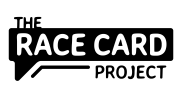Johnny Wannamaker,
San Clemente, CA
Living in the overwhelmingly white populated South Orange County and attending public school here has allowed me certain insights as a biracial student. The issues around race are not addressed. Although I never faced physical harm, I was acutely aware of the social coding that kept myself and other students of color separated from our white peers.
First off, the topic of race is almost entirely unspoken unless it can be under the guise of white curiosity. It’s a fascination to the students that are Southern Californian born and raised, typically blonde-haired and blue-eyed. When I first moved here from a very Black-driven community in Georgia, I received constant requests from girls if they could touch my coarse, curly hair. Even worse, I would feel someone’s hands in my hair and enthusiastic and lighthearted comments that “It’s so curly!” or “Wow it’s so thick!” Imagine a complete stranger coming up to you trying to pet you as though you were some exotic animal and that same stranger getting offended whenever you expressed you didn’t want to be touched or that you were uncomfortable with the interaction. Other accounts include comments that I could say the N-word if I wanted to, that I should be a really good dancer and love fried chicken and spicy food. All these assumptions were made about me and the way I should act. Suddenly, for the first time in my life, my ethnic background was a novelty. A discussion topic, my defining characteristic.
I couldn’t escape the feeling that I was constantly being observed. American History class: all eyes on the single representative for the topic of slavery. The only one who could possibly have any understanding of what the other end of racism looked like. I was called on by the teacher during class on a regular basis through this topic and asked for my perspective or the teacher would feel it appropriate to use my name for examples, inserting me into the classroom discussion and putting spotlight on me without a shred of my consent. There was an incident in my U.S. History class where our teacher turned on a documentary to cover a certain topic. Standard procedure. However, it included extremely graphic material of a Black teen’s corpse after a horrific, brutal murder by the bare hands of a white man. I couldn’t contain my emotional reaction and broke into tears, but everyone turned to look at me. No compassion in their eyes, just a blank expression as though I was doing the wrong thing. I ran out of the classroom to throw up and sat outside until the documentary was over.
I could go on for days on my accounts of blatant racism, but it all boils down to this: It’s overwhelming to be the only exposure someone has to a person of color. I am expected to not speak out, but rather to humor the students that felt I should act more “Black” (I am vegan, I don’t use southern slang, I choose not to use the N-word). At the same time, I was expected to fulfill all of the stereotypes of a Black person that are wildly unfair and downright disrespectful. Many would receive my politeness in response to their uninvited behavior towards me as I like being singled out for the color of my skin, or that we were friends by the end of one conversation. I will no longer spare the feelings of others with my identity. I am Black. I am proud. No you cannot touch my hair because I am not an animal you can just walk up to and pet. And no, I will not “give you the pass” to say the N-word. I will not be used by others to make them feel better about their internalized racism. My voice will be heard.






